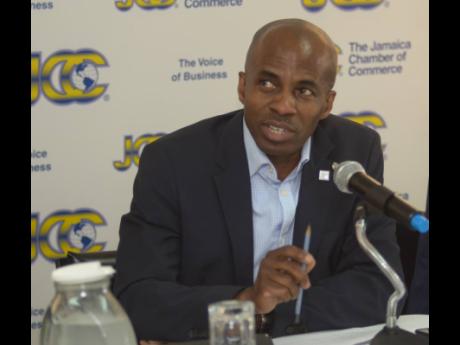Private sector backs soft COVID lockdown
Fears ‘hard shutdown’, wants tougher enforcement
Private sector leaders are calling for greater enforcement of COVID-19 protocols, while lining up behind the additional restrictions announced at the weekend, in what is being described as a soft or partial lockdown of the economy. The next...
Private sector leaders are calling for greater enforcement of COVID-19 protocols, while lining up behind the additional restrictions announced at the weekend, in what is being described as a soft or partial lockdown of the economy.
The next disaster order is expected to be tougher on the recalcitrant.
The Jamaica Chamber of Commerce, Private Sector Organisation of Jamaica, or PSOJ, and the Jamaica Manufacturers and Exporters Association, JMEA, all say that while businesses will pay a price, due to the expected erosion of commerce, it is small compared to the cost to human life and the economy if there is no check on the spread of the virus.
There is all-round concern for the effect of the partial lockdown on businesses. To keep commerce humming, a e-commerce platform known as ENDS is being created, allowing for all businesses to have goods delivered to clients during the period of restriction.
WiPay Jamaica has said it is facilitating the platform.
Jamaica Chamber President Lloyd Distant Jr said that from a commercial standpoint, businesses would want to maximise opening hours to facilitate earnings; that a partial lockdown was preferable to more stringent measures, such as those that would arise from a hard lockdown.
“Any restrictions, and particularly increased restrictions, will have a deleterious impact on business activity and the ability to earn. The past 12 months have seen many businesses close, some on the brink of closure, and many persons losing their jobs. A hard lockdown would be inimical to the desired resuscitation of the economy we all desire,” he said.
JMEA President Richard Pandohie adds that Jamaica’s socio-economic structure cannot support a hard lockdown, which would lead to an erosion of income.
“With more than 50 per cent of the labour force in the informal sector, it would mean that many persons would be deprived of earnings and thus impact their capacity to look after their dependants. If not managed carefully, a hard lockdown could spiral into a social crisis,” Pandohie said.
The private-sector organisations and their members have been cooperative with the government on measures implemented since the coronavirus was detected in Jamaica a year ago.
Their one criticism in discussions with the Financial Gleaner on Monday, was that lack of compliance and low enforcement had served to push the health system to near breaking point. The situation, they noted, calls for the government to do more to rein in the non-compliant.
“Lack of compliance to protocols is one of the things that have put our country in this position. What we need is that the proposed laws have sufficient teeth to allow the security forces to take action that results in meaningful, punitive penalties whenever they discover non-compliance,” said Distant.
Pandohie, who also wanted greater enforcement, was nonetheless sympathetic to law-enforcement personnel, who have two large crises on their hands – COVID and crime.
“Much pressure is being put of them to enforce protocols during the health pandemic, while they are battling a crime epidemic,” Pandohie said.
“The JMEA agrees that decisive actions had to be taken to stem the trend. We accept the GOJ (Government of Jamaica) decisions on the weekend lockdowns and other measures announced; however, we are concerned that the fundamental issue of ineffective enforcement has not been addressed,” he said.
PSOJ President Keith Duncan says both the membership and the wider business community recognise that Jamaica is at a tipping point.
“The tighter restrictions are necessary to slow the spread of the virus, reduce the burden on the public healthcare system and, most importantly, save lives. Our healthcare workers are stretched to the limit and hospitals are over capacity. It is clear that stricter measures are critical at this time,” Duncan said in a PSOJ press release.
The lockdowns have not only been affecting businesses, but also the markets. In this current round of restrictions, the Jamaica Stock Exchange will be shortening trading on two business days – on Friday, March 26, and Thursday, April 1. The market will close at 11:30 a.m., in compliance with the Government’s directive that all business activity should cease by noon on those two days.


